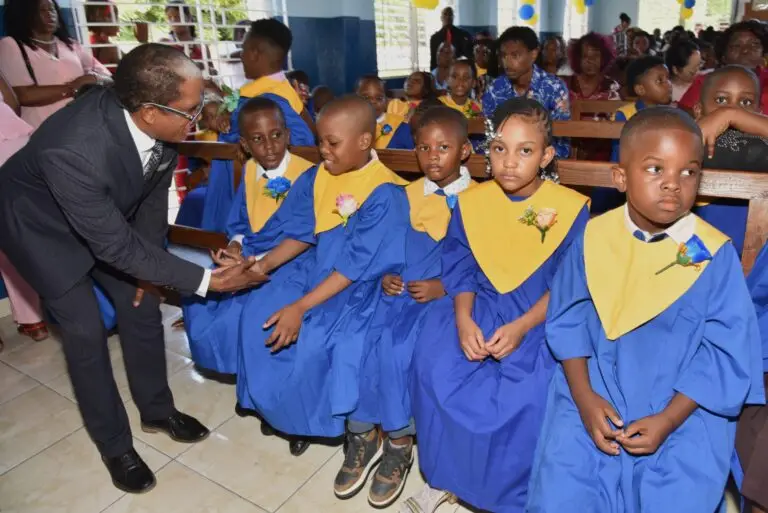KINGSTON, Jamaica — The Ministry of Labour and Social Security’s Early Stimulation Programme (ESP) celebrated its biggest milestone to date this week, advancing 74 children—once flagged for intensive developmental support—into primary education.
A Two-Track Launchpad
- Special-Education Pathway: 56 pupils will continue in purpose-built special schools, each equipped with therapists and adaptive technologies to keep progress brisk.
- Mainstream Leap: The remaining 18 will join regular classrooms, a testament to how early, targeted therapy can close developmental gaps before age six.
Why This Matters
- Economic upside: Early-intervention graduates are statistically more likely to require fewer remedial services later, saving the public purse significant funds over their schooling lifespan.
- Workforce dividends: Boosting functional independence from a young age expands Jamaica’s future talent pool—a quiet but powerful economic engine.
- Social cohesion: Mainstreaming when appropriate promotes peer understanding and chips away at stigma surrounding disability.
Voices from the Frontline
State Minister Dr Norman Dunn framed the achievement as nation-building strategy rather than social service: “Every early-intervention dollar compounds into national productivity down the road.” He challenged private-sector leaders to scale funding so ESP can double its annual intake.
Parents, too, seized the microphone. One father recounted how his son, once non-verbal, now negotiates for extra playtime “like any six-year-old lawyer.” Laughter aside, their stories underscored a bigger point: progress is contagious—when families get visible wins, community scepticism melts.
Behind the Numbers
| Metric | 2023 Cohort | 2024 Cohort |
|---|---|---|
| Children served | 62 | 74 |
| Independent walkers | 68% | 71% |
| Speech milestones met | 79% | 83% |
| Mainstream-school readiness | 20% | 24% |
Partnership Pipeline
Corporate allies—including Digicel Foundation, JSIF, NCB Foundation, Food for the Poor, and Guardian Life—underwrote therapy hours, mobility aids, and caregiver workshops. ESP officials hint at new MOUs that could extend services beyond Kingston into St James and Manchester by 2026.
Looking Ahead
ESP leadership is piloting a mobile-clinic model to reach rural families who cannot commute weekly to Kingston. If funded, the initiative could raise national enrolment capacity by 40 per cent within two years.
Bottom Line
Seventy-four children crossed a stage this week, but the larger headline is strategic: early-stage therapy isn’t charity—it’s economic infrastructure. With fresh data in hand, ESP now has the proof—and the momentum—to make inclusive education Jamaica’s default, not its exception.






